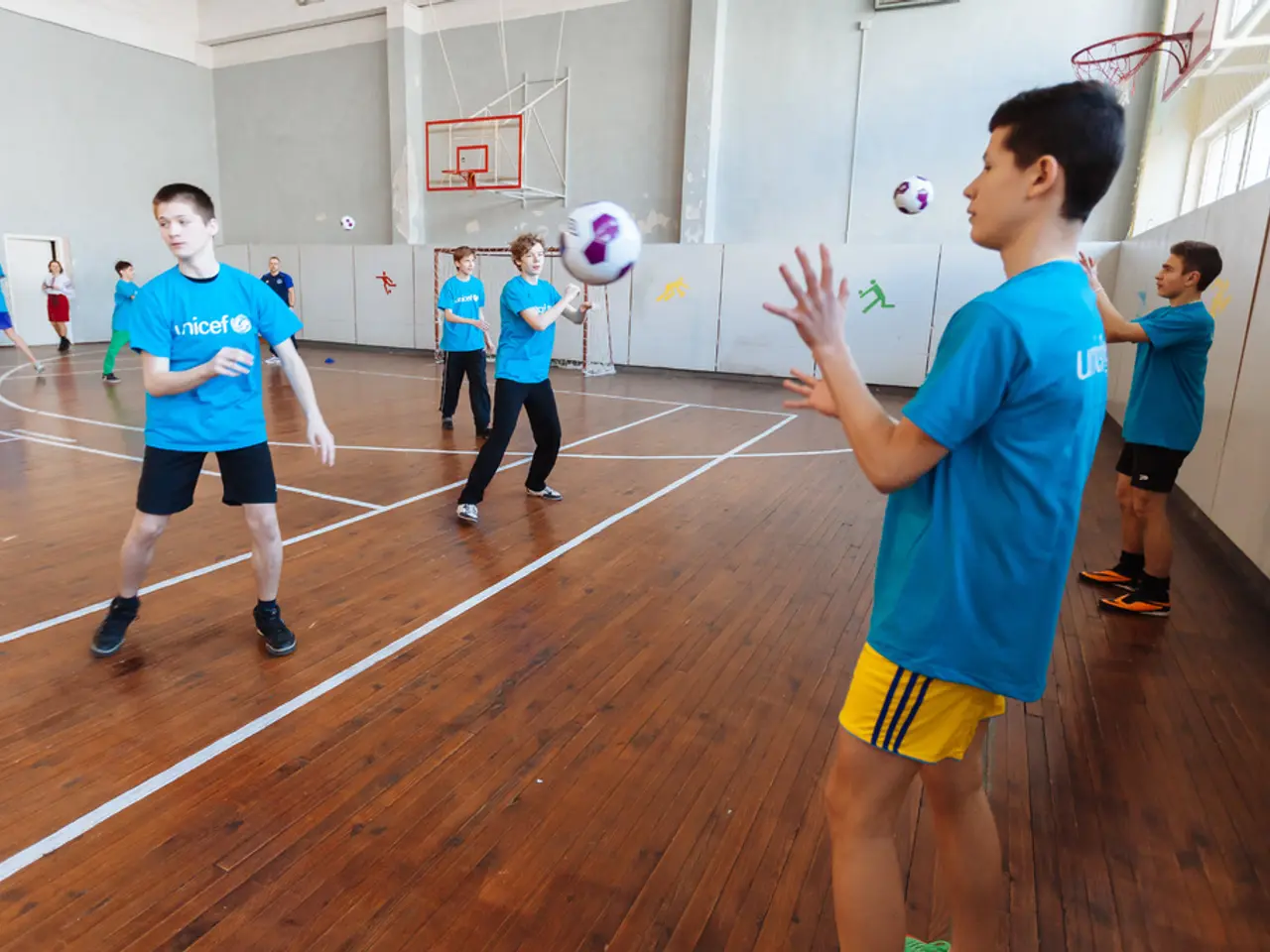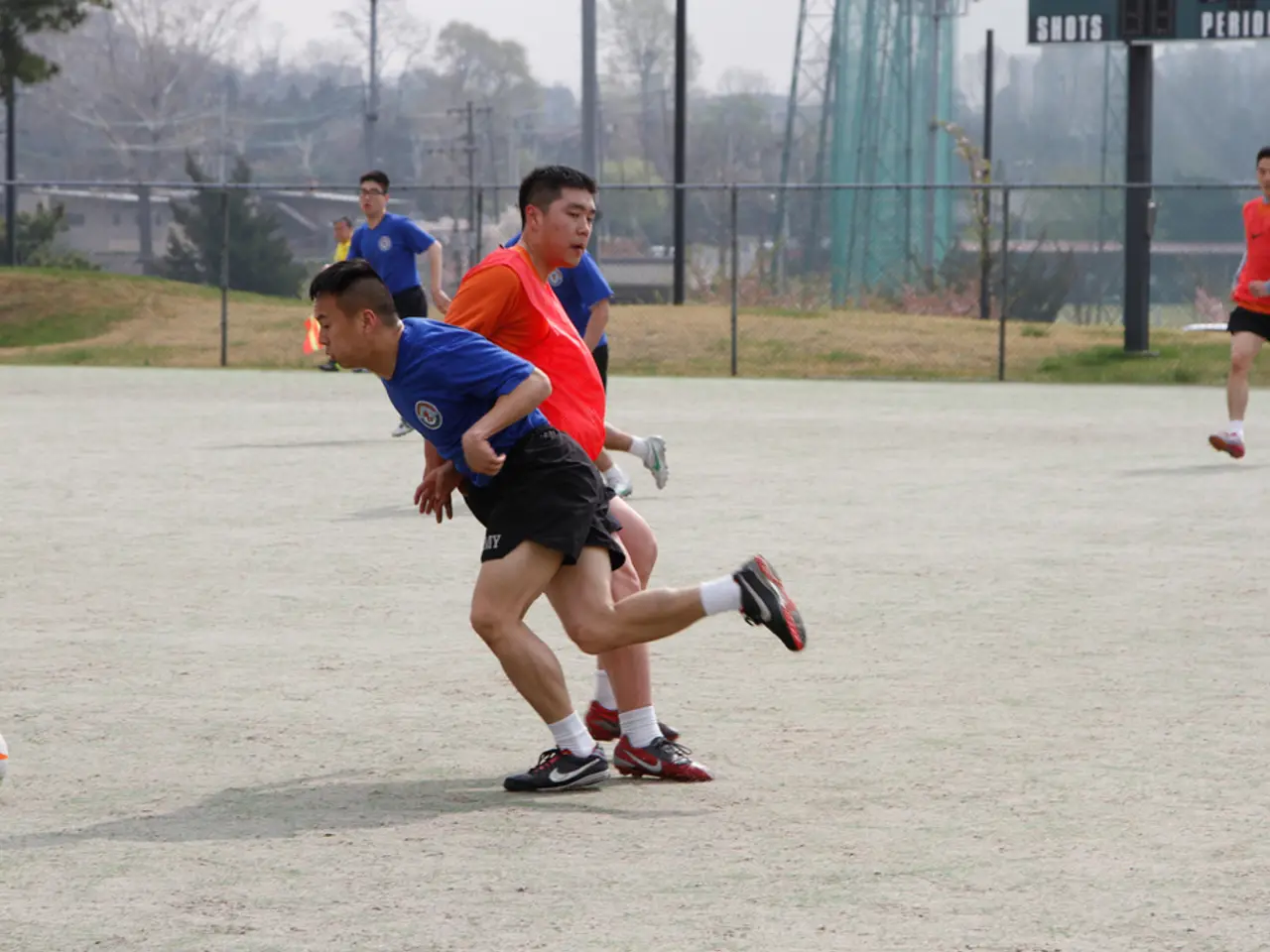SouthKorea's modification of the South Korea-US military exercise may strain the alliance, predicts a think tank.
The Unification Minister, Chung Dong-young, has proposed to President Lee Jae Myung to make adjustments to the upcoming large-scale military drill, the Ulchi Freedom Shield, scheduled for mid-August. This move comes amidst North Korea's repeated calls for an inter-Korean thaw and their condemnation of joint military drills as a rehearsal for invasion and a provocation.
The Korea Institute for Defense Analyses (KIDA), a state-affiliated think tank, has released a report suggesting that North Korea's potential conditions for reviving talks with South Korea and the United States include formal acceptance by Washington of North Korea as a permanent nuclear weapons state and abandonment of denuclearization demands.
According to KIDA, North Korea appears willing to resume dialogue only if the U.S. acknowledges its nuclear status upfront and abandons prior conditions focused on denuclearization, which Pyongyang views as obsolete. This stance also implies a shift toward dialogue based on "new thinking" rather than past frameworks that demanded denuclearization as a precondition.
North Korea has also warned of exercising its "self-defense" rights in response to joint military exercises by South Korea and the U.S., indicating that such military activities remain a significant obstacle to dialogue and contribute to tensions. Thus, conditions for talks likely include halting or scaling back these provocative military exercises and reducing tensions on the Korean Peninsula.
The KIDA report warns that a potential one-sided concession from Seoul in the area of defense, without proper negotiation with Pyongyang, could devalue the South's efforts and later its negotiating power. The report also suggests that Kim Yo-jong's latest comments were aimed at testing the alliance between the Lee administration and the Donald Trump administration and their willingness to carry out the annual joint military exercise.
The Ulchi Freedom Shield drill is a significant annual military exercise between South Korea and the United States. The report from KIDA provides insights into North Korea's potential strategies and conditions for potential future negotiations with South Korea and the US. It also highlights the importance of the South Korean government's response to Kim Yo-jong's comments and the potential impact on the annual South Korea-US military exercises.
The report from KIDA further notes that a weakening of trust between Washington and Seoul could occur as a result of the proposed adjustments to the military exercise. The Lee administration has repeatedly gestured for an inter-Korean thaw, including removing the South's anti-Pyongyang loudspeakers installed across the border. However, the adjustment to the scale of the South Korea-US military exercises is one of Pyongyang's conditions to achieve a favorable environment, according to KIDA.
In conclusion, the proposed adjustments to the South Korea-US military exercises could have significant implications for the trust between Washington and Seoul, as well as for the overall negotiations between the two nations and North Korea. It is crucial for both South Korea and the United States to carefully consider their response to North Korea's conditions and maintain a strong alliance while seeking a peaceful resolution on the Korean Peninsula.
References:
- North Korea's negotiation strategy shown through Kim Yo-jong's comments and how (South Korea) should respond
- North Korea's nuclear threats and South Korea-US military exercises
- North Korea's nuclear ambitions and the stalemate in denuclearization talks
- The role of the Korea Institute for Defense Analyses in shaping South Korea's defense policy
- North Korea's warning of self-defense in response to military exercises
Policy-and-legislation discussions surrounding the Ulchi Freedom Shield military drill are heating up, with the proposed adjustments to the drill by South Korea potentially impacting general-news headlines. The adjustments could have significant implications for the trust between Washington and Seoul, as well as for the overall negotiations between the two nations and North Korea. It is crucial for both South Korea and the United States to carefully consider their response to North Korea's conditions and maintain a strong alliance while seeking a peaceful resolution on the Korean Peninsula.








